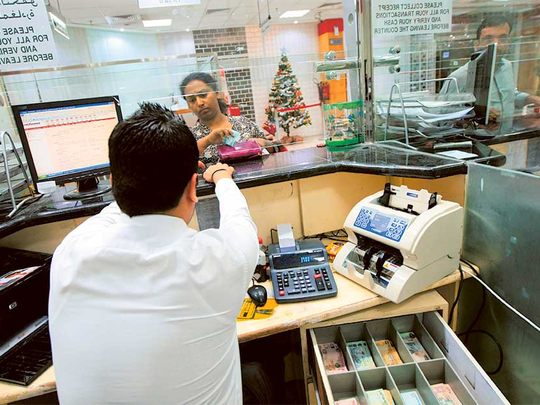
Dubai: Remittance of the Indian community in the UAE is on the rise thanks to the relative weakness of the Indian rupee against the dirham and the surging interest in the wealthy non-resident Indians in investing back home, according to a recent white paper commissioned by Friends Provident International (FPI) and published by the Economist Intelligence Unit (EIU).
The findings of the survey show how important financial planning is for expatriates if they want to reap the benefits of working in a tax-free environment, and avoid the pitfalls of hidden costs and high prices.
The study showed that in stark contrast with other expatriate nationalities in the UAE, NRIs are one of its most financially prudent expatriate groups. Previous research published last year found that non-resident Indians put aside an average of 70 per cent of their disposable income for investment and saving.
“Much has been said about the UAE’s many spending temptations and the fact that expats are not saving enough for their retirement, or for other important events in their lives. We see that non-resident Indians, be they high or low-income earners, have incredible financial discipline and their culture of saving makes them a great case study, highlighting the value of careful financial planning,” said Marcus Gent, Managing Director, Middle East and Rest of the World at FPI
Much of the money remitted is used for family support. India’s less developed pension system, compared with Europe or North America for example, drives expatriates towards supporting their parents and children rather than starting a retirement plan for themselves. More than 80 per cent of Indians in the UAE have been two and five dependents to support, many of these back home in India.
According to the study, culturally, Indians consider the education of their children and paying for their wedding as fundamental financial planning requirements. Some 90 per cent invest heavily in their children’s education, in the expectation that this will help them with their career and to lead more fulfilling lives.
Remittance from the UAE to India is supported by the relatively lower cost compared to other locations. Specialist money transfer firms such as UAE Exchange, Al Ansari, Emirates NBD and Western Union, charge fixed fees as low as Dh15 on transfers to India. For UK expatriates, the fee can be two or three times higher when remitting to their home country. While there is some variation — fixed rates of up to Dh80 can apply for express payments — the average cost of sending $200 (Dh734) to India from the UAE is about $5. Sending the same amount to India from Australia costs three times as much.
“Earning in dirhams could translate favourably into a comfortable retirement, especially given the current weakness of the Indian rupee. For investment opportunities, India is an attractive prospect for the savvy, better-off white-collar Indian investor — and remittance and investment flows from the UAE to India clearly confirm a continued and increasing appetite.











